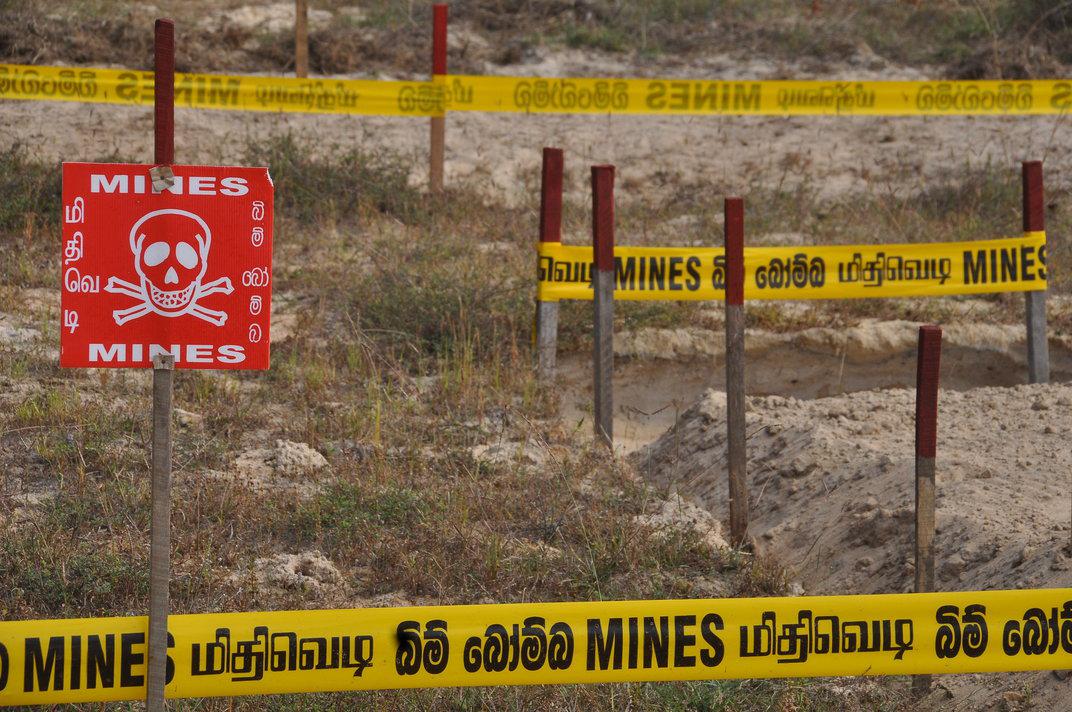The transparency now required of Sri Lanka as a state party to these treaties could help to formally answer questions about past cluster munition and land mine use.
ITJP Universal Jurisdiction Combatting Impunity in Sri Lanka March 15 2018
by Mary Wareham, Human Rights Watch, New York, March 14, 2018
Sri Lanka has become the 103rd country to join the 2008 Convention on Cluster Munitions, and the first South Asian country to ban these indiscriminate weapons.Sri Lanka acceded to the convention on March 1, 2018, less than three months after the country’s accession to the 1997 Mine Ban Treaty.
As a state party to both conventions, Sri Lanka has committed to never use, transfer, produce, or stockpile cluster munitions or antipersonnel landmines under any circumstances. It must declare and destroy any stocks as well as report and clear mined areas and contamination from unexploded submunitions and other cluster munition remnants by specific deadlines.
One incentive for countries to join these treaties is the likelihood of financial and technical assistancefrom other countries to help ensure implementation of the treaty requirements. This benefits mine clearance operators risking their lives daily to make land safe again and can help victims of landmines and explosive remnants of war.
Sri Lanka is not known to have produced or exported cluster munitions, a weapon that releases between multiple submunitions in the air, scattering them across a wide area and creating a deadly legacy of explosive remnants. Officials have denied the armed forces ever used these weapons, although there were allegations of use during Sri Lanka’s civil war with the Liberation Tigers of Tamil Eelam, which ended in 2009. During the nearly three-decade long conflict, both sides committed numerous serious violations of the laws of war, many amounting to war crimes.
Antipersonnel mines were produced and used extensively by both sides during the conflict. The transparency now required of Sri Lanka as a state party to these treaties could help to formally answer questions about past cluster munition and land mine use.
Other South Asian countries, such as India, Nepal, and Pakistan, that have yet to sign either ban treaty should review their policy on cluster munitions and landmines and take steps to join without further delay.
All countries should help stigmatize these indiscriminate weapons, which endanger lives long after the fighting has stopped.
